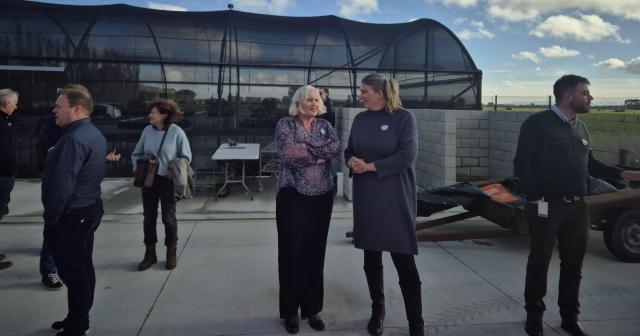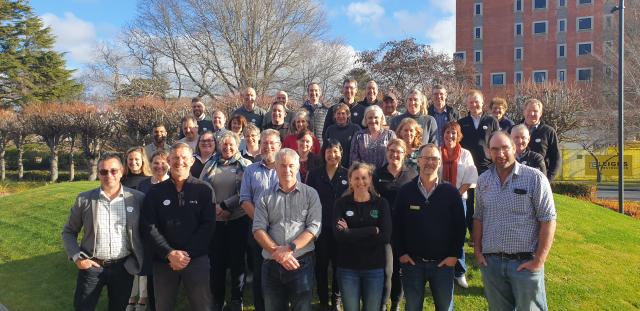B+LNZ and AgResearch recently hosted a workshop about the Eliminating Facial Eczema Impacts programme. Researchers, farmers, rural professionals and government officials gathered to receive updates, explore knowledge gaps, and discuss new topics and farmer strategies for managing this devastating disease.

Held annually, the workshop aims to foster collaboration. This year’s workshop began with an overview of the EFEI programme, followed by a Q&A session where attendees could clarify their understanding and contribute their expertise on facial eczema (FE) management.
The workshop focused on two main topics, where input was sought from attendees:
- identifying new opportunities to include in the current EFEI programme
- strategies to increase the EFEI programme’s visibility and impact.
Suggestions included increasing the understanding of how the toxin affects the animal and the associated immune response and using big data analytics. Attendees also proposed enhancing outreach through social media influencers, text alerts, and partnerships with rural advisors.
"This workshop is crucial for bringing together diverse perspectives to tackle facial eczema. Collaboration is key to developing effective strategies and solutions," said Suzi Keeling, Sector Science Strategy Manager at B+LNZ.
"By leveraging new technologies and approaches, we can make significant strides in managing and ultimately eliminating the impacts of this disease."
B+LNZ works to ensure that research is conducted in collaboration with farmers, researchers, and rural professionals. It is crucial to have a farmer perspective throughout the development of farm strategies to manage disease, as they are the experts in farm management.
“Farmers and rural professionals need to be the adopters of any solutions uncovered, so having them involved from the start ensures those solutions are practical.
“Workshops like this provide an opportunity to check progress, share ideas, and ensure everyone is on the same page, working stronger together.”
Livestock farmers are critical to the success of the EFEI programme. With the participation of over 200 farmers already, the programme actively collaborates to pioneer innovative solutions for FE management.
The goal is to engage with a broad spectrum of livestock farmers throughout the programme, from on-farm operations to governance, ensuring that initiatives are not only impactful but also practical and beneficial.
The EFEI programme, announced in March by Agriculture Minister Todd McLay, is jointly funded by B+LNZ, the Government through the Ministry for Primary Industries Sustainable Food and Fibre Futures fund and the primary sector. It continues to make strides towards significantly reducing the devastating impacts of FE on New Zealand's livestock.

Workshop attendees outside AgResearch in Lincoln.